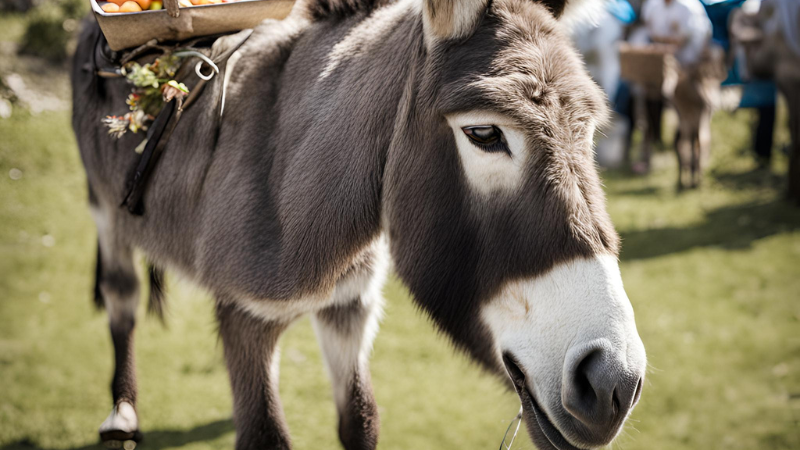
In today’s fast-paced world, where technology often takes center stage, it’s easy to overlook the importance of the humble donkey. However, on World Donkey Day, observed annually on May 8th, we take a moment to honor and celebrate these incredible creatures and their vital role in various aspects of human life and the environment.
Transitioning from being perceived merely as beasts of burden to becoming symbols of resilience and companionship, donkeys have woven themselves into the fabric of human history. From aiding in transportation and agriculture to providing therapy and companionship, their contributions are manifold and often understated.
As we delve deeper into the significance of World Donkey Day, let’s explore the multifaceted roles these gentle yet hardworking animals play in our lives and why they deserve recognition.
The Historical Significance of Donkeys
Dating back thousands of years, donkeys have been integral to human civilization. In ancient times, they served as indispensable pack animals, facilitating trade and transportation across vast distances. Their ability to traverse rugged terrains made them invaluable companions on long journeys through deserts, mountains, and forests.
Transitioning through various civilizations, donkeys remained a staple in agriculture, aiding farmers in plowing fields, transporting goods, and carrying heavy loads. Their strength, endurance, and surefootedness made them ideal partners in tilling the land and bringing produce to market.
Donkeys in Modern Society
While technological advancements have diminished the prominence of donkeys in certain areas, their significance remains profound in many parts of the world. In rural communities, especially in developing countries, donkeys continue to serve as vital assets, providing essential support in agricultural activities and transportation.
Moreover, donkeys have found a new role in therapeutic settings. Equine-assisted therapy programs utilize their gentle nature to aid individuals with physical, emotional, and developmental challenges. The calming presence of donkeys has been known to reduce stress, anxiety, and depression, fostering a sense of well-being and connection.
Conservation Efforts and Environmental Impact
Beyond their direct interactions with humans, donkeys also play a crucial role in environmental conservation. In regions where grazing by larger livestock may cause ecological damage, donkeys offer a sustainable alternative. Their selective grazing habits help maintain the delicate balance of vegetation, preventing overgrazing and soil erosion.
Furthermore, donkeys contribute to biodiversity by dispersing seeds through their droppings, aiding in the propagation of plant species. In arid environments, where water is scarce, their efficient digestion system allows them to thrive on sparse vegetation, making them well-suited for regions facing environmental challenges such as drought and desertification.
World Donkey Day: A Call to Action
As we commemorate World Donkey Day, it’s essential to recognize the ongoing challenges facing these remarkable animals. Despite their unwavering dedication and contributions, donkeys often endure neglect, exploitation, and mistreatment.
Heightened awareness and advocacy are crucial in safeguarding the welfare of donkeys worldwide. Supporting organizations dedicated to donkey welfare, promoting responsible ownership practices, and advocating for legislative protections are tangible steps toward ensuring a brighter future for these beloved creatures.
World Donkey Day serves as a poignant reminder of the profound bond between humans and animals and the shared responsibility we hold in safeguarding their well-being. Let us celebrate the resilience, loyalty, and invaluable contributions of donkeys to our lives and the world at large.
[WPSM_AC id=1085]

